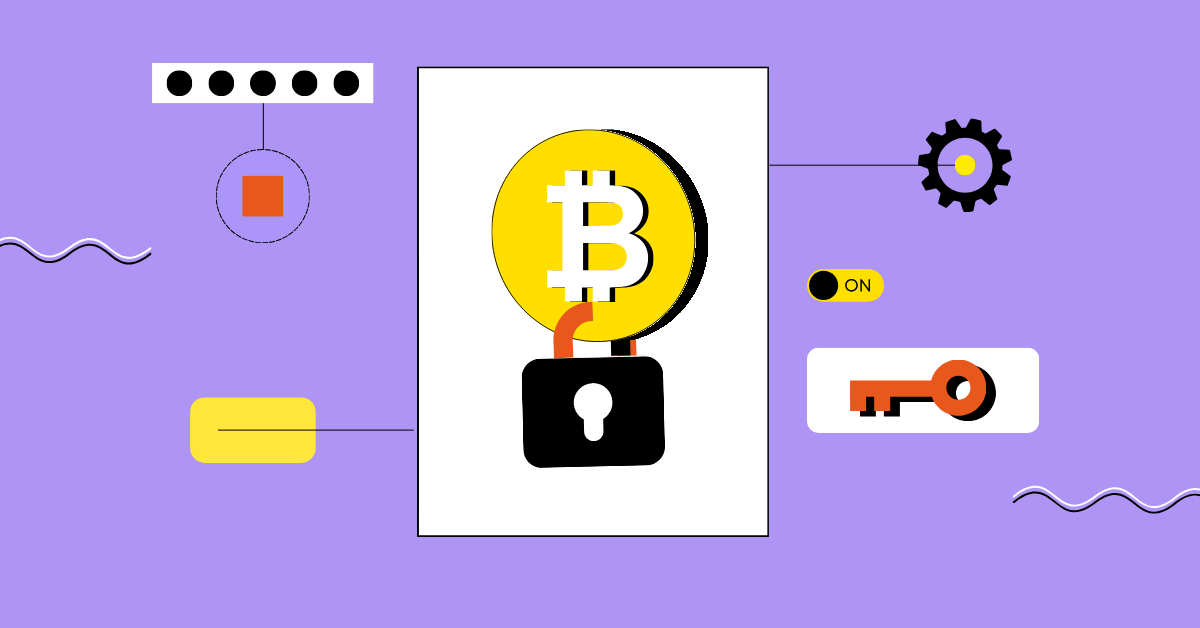
The cryptocurrency world is truly an amazing one – where you’re in complete control of your own finances.
But with great power comes great responsibility. And when it comes to cryptocurrencies, that means protecting your assets from hackers.
This academy article is meant for anyone who wants to learn how to protect their cryptocurrencies from hackers. This includes crypto investors, traders, and anyone else who holds crypto assets. It is especially important for beginners, as they may be less familiar with the security risks associated with cryptocurrencies.
Read on!
Crypto security, in straightforward terms, involves safeguarding your digital assets and financial transactions from online threats. It’s crucial because:
Think of crypto security as locking your digital wallet to keep your funds safe in a world where digital thieves are always trying to break in.
Securing your crypto accounts is vital to prevent unauthorized access and theft. Here are some practical steps:
a. Strong Passwords: Create complex, unique passwords for each crypto account using a mix of letters, numbers, and symbols.
b. Two-Factor Authentication (2FA): Enable 2FA to add an extra layer of security by requiring a one-time code from your phone during login.
c. Hardware Wallets: For long-term storage, consider hardware wallets that are offline, providing excellent protection against online threats.
d. Beware of Phishing: Stay vigilant against phishing attacks; double-check URLs and emails, and avoid clicking on suspicious links or downloading unknown files.
e. Keep Your Device Secure: Maintain updated antivirus software and regularly update your system.
f. Diversify Wallets: Avoid keeping all your crypto in one place. Use hardware wallets for long-term storage and software wallets for daily transactions.
g. Regular Monitoring: Stay informed about your accounts and transaction history.
h. Stay Informed: Keep up-to-date with the latest scams and security procedures.
For enhanced security, consider these advanced measures:
Identifying and steering clear of crypto scams is vital. Here are tips to help you spot and avoid potential scams:
Ensure the safety of your crypto transactions with these practices:
Planning for emergencies and recovery in the crypto world is essential. Here’s how to prepare:
Seed phrases ensure that you are never locked out of your account or wallet. Store multi-copies of the backup in different safe locations which are usually offline.
Consider multi-signature wallets that require multiple private keys to authorize the transactions.
Identify trusted individuals who can get access to your account in case of an emergency.
Document a step-by-step guide to the recovery of your account and whom to contact in case of emergency. Keep it in a secure location.
Avoid keeping all the money in one place. Use different locations to store the money.
Consult the legal and financial professionals who understand crypto to ensure that the assets are accounted for.
Research good crypto insurance options that cover theft or losses. Choose the policies that suit your needs.
Also Read: Keep Your Crypto Safe: Learn About Private Keys and Seed Phrases
Now that you know how to protect your cryptocurrencies from hackers, you can sit back, relax, and enjoy the ride. After all, you’re in control of your own money now.
Just remember to be vigilant and keep your security practices up to date. Hackers are constantly coming up with new ways to steal people’s crypto, so it’s important to stay one step ahead of them.
When malicious agents try to access your funds by attacking your crypto wallets and accounts, the crypto hacks take place.
Yes, by following a strong security mechanism, such hacks can easily be prevented.
Phishing attacks are becoming viral with time. Hackers send links and suspicious URLs to trap the users and gain access to their accounts. It is advised not to click on any such links.
Macroeconomist Henrik Zeberg sees the ETH to BTC ratio pushing toward 10%, which would place…
WhiteBIT, the largest European cryptocurrency exchange by traffic, announces that its native WhiteBIT Coin (WBT)…
The total supply of XRP is capped at 100 billion tokens, a factor shaping its…
Sui price has started to show early signs of recovery after weeks of selling pressure.…
According to Fortune, Intercontinental Exchange, the publicly traded parent company of the New York Stock…
Story Highlights The live price of Theta Network is THETA could attempt a recovery toward…